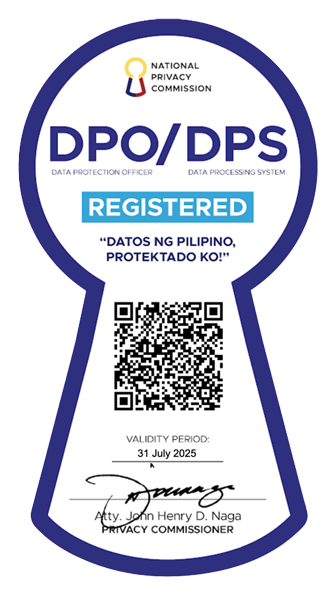Getting Started with Outsourced Customer Service

The Philippines has established itself as a world-class outsourcing destination, thanks to its vast talent pool, affordable wages, and outstanding government support. One of its known specialties is outsourced customer service, a vital function that connects businesses from their customers and vice versa.
While customer service is not a core business activity, it still plays a huge role in increasing a company’s profitability. So if you’re someone who’s looking into outsourcing customer service in the Philippines, make sure to take your time in finding the most suitable BPO company for your business.
But before you set out on your journey, let’s take a deeper dive into the Philippines’ customer service outsourcing industry to equip you with the necessary information in locating a reliable provider.
What is Customer Service Outsourcing?
Customer service outsourcing is the method of hiring another company to manage your customer service functions. Its scope depends on your requirements or the package you’re planning to get. These are the usual customer support services provided by Philippine BPO companies:
- Inquiry handling – for basic to complex questions about your products and services.
- Complaint resolution – for assisting customers in resolving issues on your product offerings (e.g., inaccurate order, payment errors, etc.)
- After-sales support – for continuous support granted to customers who bought your products.
These three are available in both voice and non-voice operations.
Meanwhile, customer service outsourcing is available for short-term, long-term, and seasonal projects. Whether you’re in search of extensive customer care support or temporary assistance during peak seasons, you can always find a service modified to meet your needs.
Today, many world-renowned companies like Google, Amazon, Bank of America, and Wells consider outsourcing as a strategic and modern way to improve efficiency and minimize costs. They acknowledge the importance of outsourced customer service but also recognize the benefits of entrusting this to a specialized provider.
Benefits of Outsourcing Customer Service in the Philippines
Some of the benefits you can expect in outsourced customer service in the country are the following:
1. Gives You Access to Well-Trained Talents
Philippine call centers take customer service training very seriously. Customer service representatives who will work with you undergo exhaustive foundational skills training (FST) and product-specific training (PST) to prepare them for handling your account. Aside from basic knowledge of grammar, active and empathetic listening, and accent, they’re also being exposed to the technicalities of your business. This way, they’ll be able to provide outstanding customer care.
2. Delivers Higher Customer Satisfaction
Customers hate being passed on. They expect you to resolve their concerns as soon as possible. Any delays count as a risk of losing them to your competitors.
Philippine BPO companies understand this. As a solution, they set guidelines on waiting times, average handle times, issue resolution, and other KPIs to gauge their service delivery. In most cases, call centers have in-house quality assurance specialists to assess if your outsourced team meets your standards.
In addition, many Filipinos possess the traits required of a good customer service representative such as hospitality, patience, high English proficiency, and familiarity with the Western culture. Combine it with sufficient product knowledge and they can deliver stellar service quality.
And it only means one thing — happier customers.
3. Brings in Extra Savings
Another benefit of outsourcing to a Philippine call center is its affordable rates compared to its Western counterparts.
Its lower labor market rates alone let you save up to 70%. Other than this, you can also save on recruitment, training, office space, equipment, software, and other things needed to keep your outsourced customer service department up and running.
4. Backs You Up with Solid Government Support
The Philippine government tries its best in attracting foreign investors to sustain its economic growth. In return, they provide assistance to clients like you in expediting business operations in the country.
According to the latest data, there are already more than 400 economic zones in the country. Each economic zone offers fiscal and non-fiscal incentives. Furthermore, the country is set out to cut corporate tax by up to 25% to help businesses recover from the effects of the pandemic.
5. Adapts to the Latest Advancements in Technology
Automation once created an uproar for threatening call center jobs. Though this issue has been overpowered by economic issues caused by COVID-19, the intimidating presence of virtual bots assistants persists.
Despite this, Philippine call centers remain unfazed, believing they have an active responsibility in adapting to high-speed technological developments while keeping most people employed. This means doubling their efforts on encouraging their employees to reskill and upskill.
The Information Technology and Business Process Association of the Philippines (IBPAP) also offers educational programs to help Filipino workers to adapt to automation. This initiative involves a partnership with universities, requiring the latter to adjust their curricula based on industry needs.
Along with these efforts, BPO companies are also updated with the latest trends and developments in technology to make sure that they’re only providing you with quality service.
Downsides of Offshoring Customer Service
Meanwhile, here are the possible drawbacks you may encounter when you hire a team of outsourced customer service in the country:
1. Reduced Customer Satisfaction
We have mentioned earlier that outsourcing to the Philippines can significantly improve your customer satisfaction ratings. However, this is not the case if you end up with the wrong company. Make sure to choose an outsourcing company with a good track record.
2. Loss of Control
Losing some control over your outsourced customer service department is inevitable with outsourcing. Sooner or later, you’ll need to turn over important data and entrust them in managing your account. Micromanaging your outsourced team won’t work either since it defeats the purpose of outsourcing. But it doesn’t mean you won’t have a say over the processes and the results you’re getting. The key here is to remain in close contact with your outsourced provider.
3. Data Security Issues
A data breach is no laughing matter since it can leave huge financial and reputational damages to your business. To guarantee data protection when outsourcing, thoroughly review the IT policies and data security protocols of your prospective outsourcing partners.
If you don’t want your business to experience these issues in outsourced customer service, you need to be extra careful when choosing a service provider, which we will also talk about later in this article.
Common Customer Service Channels
Providing your customers with hassle-free methods to contact your business is a crucial ingredient in building strong relationships. It drives meaningful interactions that add value to your business and your customers’ life.
For starters, customer service channels are divided into three categories: voice, non-voice, and omnichannel.
1. Voice
It simply refers to phone calls — the old but gold way of conversing with customers. The conversation happens in real-time, which is why it is vital for addressing immediate concerns such as failed bank transactions.
2. Non-voice
Non-voice channels consist of email, live chat, social media, and mobile app.
Email is usually used for complex issues which don’t require a real-time response. The acceptable response time for this channel is 24 hours but it would be better if you can respond within an hour or less.
Customer expectations are higher with live chat, social media, and mobile app. Like phone calls, conversations usually happen in real-time. These channels are ideal if you’re maintaining an e-commerce store.
3. Omnichannel
Omnichannel is the combination of several communication channels — phone, email, live chat, social media, and mobile app. It doesn’t necessarily mean using every channel. Instead, it’s about knowing your customers’ preferences.
If you’re managing a startup or a small business, it’s more realistic to begin in a single channel to conserve much of your time and effort. You can offer other contact options as your business grows later on.
To increase the speed of customer service, call centers rely on the power of technology. Some of the most popular software are: Live Agent, Nextiva, Avaya Contact Center, RingCentral, Five9, Zendesk, and Integra.
How to Choose the Right Service Provider
Choosing a service provider is critical because it will determine the success of your outsourcing endeavor. To guarantee that you’re making the right choice, we’ve prepared the necessary steps you can follow:
1. Know Your Needs
Before anything else, you must have a clear idea of why your business needs to outsource, including the results you expect to achieve. You can conduct a SWOT (Strengths, Weaknesses, Opportunities, Strengths) analysis to find out the areas you need to improve and if outsourcing is the best option for your business.
By knowing your needs, you can better filter out BPO companies that don’t meet your standards, making the process of looking for an outsourcing partner more efficient.
2. Conduct Extensive Research
Next, generate a list of potential providers that you think can offer the value you’re looking for. Look into their company profiles and track records. Reading online reviews made by past or existing clients and employees can give you a general idea of the quality of service they provide.
Stay away from companies with poor online reviews, especially when they’re not taking the time to respond and clarify the issue. For a customer service company, it’s a major red flag. How can they promise excellent service to your business if they can’t deliver it well to both of their clients and customers?
Also, look for the following elements when selecting a service provider:
- Technology
- Talents
- Quality assurance
- Service delivery
- Client support
- Cost
- Scalability
- Data security
- Business model
3. Get In Touch
Talking directly with a company representative allows you to ask detailed questions that you can’t find on the internet such as the pricing model, service information, onboarding process, and many more.
If possible, do an ocular visit to get a feel of their culture and office space. How do you think your future team would feel if they work in this company? Do you think it offers a pleasing atmosphere that fuels productivity and creativity?
4. Be Clear on Your Expectations
Even before drafting the service level agreement, be clear on your expectations. At the same time, know the outsourced provider’s strengths and limitations. Outsourcing requires two-way communication between two parties to create a great business understanding and partnership.
Outsource Your Customer Service in the Philippines
Interested in outsourcing customer service in the Philippines? Contact us to know more about our tailored outsourcing services. Our team will be more than glad to assist you in getting the most ideal solution for your business needs.
Discover more about outsourcing and
how you can maximize it for your
business success!
Get a copy of our E-book: Guide to Outsourcing.



